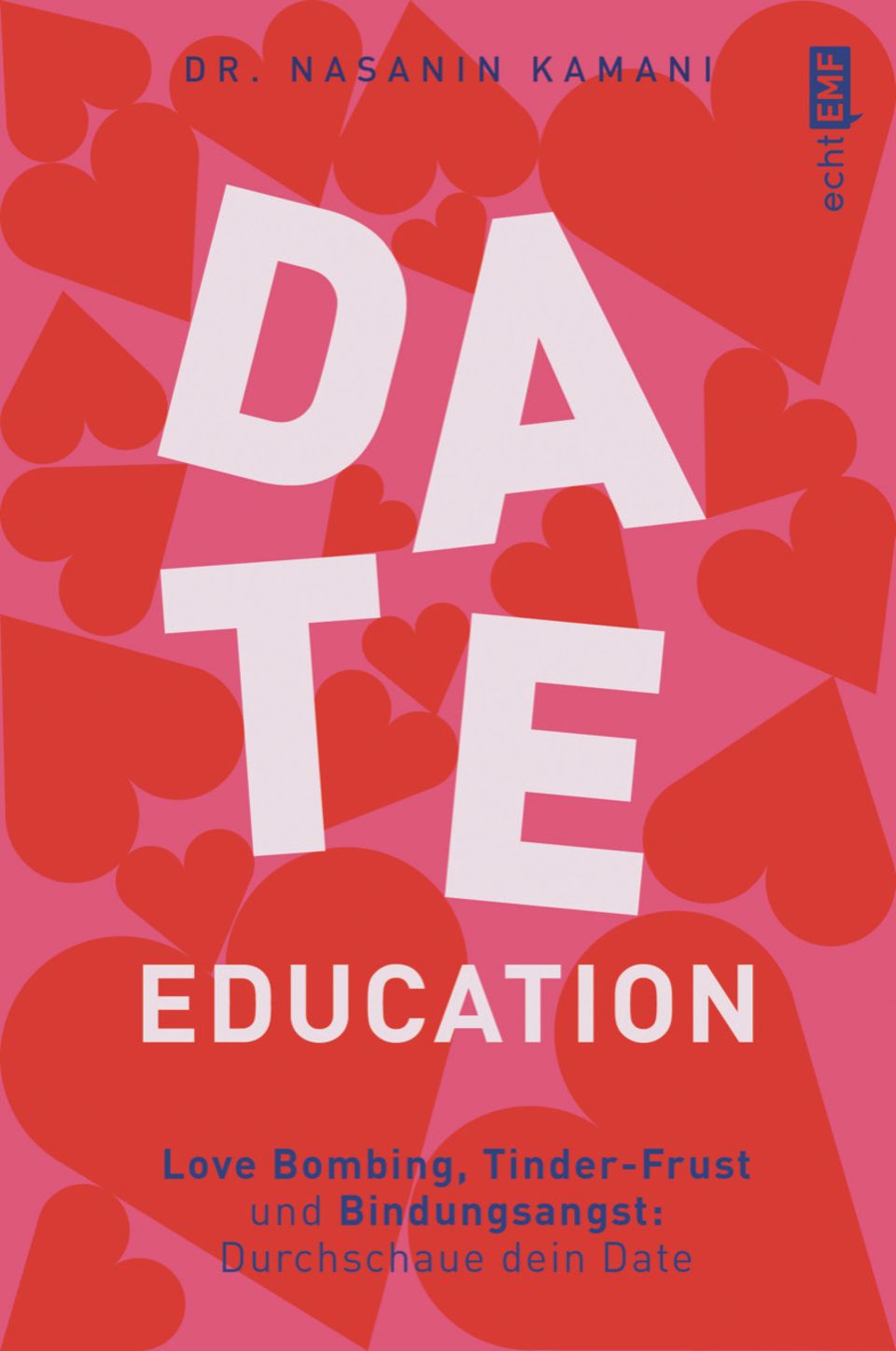interview
You would like to have her as a best friend, because Dr. Nasanin Kamani is not only experienced in dating and can tell many exciting stories, she is also a trained doctor in the field of psychiatry and psychotherapy. In her book “Date Education” she combines both sides.
With a lot of wit and humor, she tells the reader her very private dating stories, but not without conveying a message and learning. In different situations, the doctor clearly explains different actions and how one or the other can be done better in the big dating jungle. With the star the expert spoke about the biggest dating problems of today and why it is not so easy to define whether you are really in love or just chasing an unfulfilled dream.
Miss Dr. Kamani, your book “Date Education” is a mixture of your own stories paired with psychological expertise. What was an important dating-Experience?
I find the emotional phantom pain very impressive. A pain that seems inappropriate for the situation or irrational because you’ve only known someone a few weeks. You saw the relationship potential, what could be. This can happen when someone has that special something for us, an enormous attraction, or is close to our ideal. If nothing comes of it, you sometimes feel a strong grief that is not related to the number of meetings.
Why?
When you see a lot of potential in someone, it is possible that there will be an idealization of that person or the possible relationship with them. This can make the pain feel more intense than after years of being out of love Relationship.
Can you also think analytically in your personal moments?
Like everyone else, I was sometimes emotionally involved and tried as far as possible not to lose my analytical view of the situation. What can help a lot, especially in unclear situations in a phase of getting to know each other, is to write down thoughts and emotions honestly. Possible questions:
- What am I feeling right now?
- Why do I think I feel this?
- What actually happened?
- What signals did I get from the other and how did I interpret them?
- Where am I ambivalent?
- Is it real infatuation or the thrill of the unknown or unattainable?
It is important not to overinterpret things, but still give your own feelings space so that you can feel and understand yourself and the situation better.
When dating, it is often difficult to differentiate between being in love and being afraid of losing
One of my favorite sentences in your book is: Fear of loss can increase infatuation because emotional dependency is increased. How can I differentiate whether the Love or the fear of loss speaks out of me?
Ideally, love and infatuation should be a predominantly beautiful feeling. As soon as the negative emotions prevail, one should ask oneself whether fear and insecurity could also resonate. For example, if I look forward to the next date with a certain amount of excitement and excitement without being completely mentally fixed, this could indicate a healthy infatuation. However, if I can no longer sleep, can no longer concentrate, get stomach problems or heart palpitations and read through the WhatsApp history at night to find out why the other person is no longer in touch, I should be vigilant. The more negative the supposed infatuation feels, the more likely it is that fears and insecurity can also play a role, perhaps on the basis of a toxic dynamic.

An entertaining book about the dating world with a learning effect
In the stories of Dr. Nasanin Kamani is about sex without feelings, fear of commitment, ghosting, guys who are too nice and the mystery of when the sparks fly. A book full of honest feelings about the most complicated and beautiful thing in the world – provided with an analytical x-ray view that illuminates our thinking, feeling and acting in an exciting way and offers us a helpful orientation when looking for a partner.
In today’s dating world there are hardly any clear statements like “Unfortunately it doesn’t fit”, people use excuses to evade contact and further meetings. When it comes to dating, what’s the difference between “I’m tolerant” and “I let myself be fooled” and how do I tell?
Anyone who asks too many questions and demands too much commitment these days is quickly labeled as “hysterical”, “exhausting” or “needy”. This applies to both women and men. In such a situation, it is important to have a mixture of gut feeling and reason: Does what is being communicated and what is happening make sense to me? Does that feel right? Is it perhaps a really stressful work phase and are there any indications of this? Or is there another crisis in his or her life? The heart should also have its say: Do the feelings develop on both sides, do I feel sincere interest? The exchange with friends can also help us if our own view is emotionally discolored. It is also important not to lose sight of your own satisfaction during all the weighing and analysis: a person can correspond to my personal ideal so much, but if the communication and closeness relationship is not right for me, that could make me unhappy in the long run .
What if you have a bad gut feeling yourself, but your friends are advising you to hook up? For example “He’s a sane guy and not another bad boy, give him a chance”.
It’s worth a try if you’re a bit convinced of it yourself. If you don’t feel any activation energy, even going on the next date or answering the next message and you realize that you have to overcome a lot, that you literally have to pull yourself together, I would take this dating laziness as a bad sign and give me and the other person the extra round spare
What would you define as the biggest dating problem of our time?
What I very often encounter in my professional and private everyday life is the fear of committing myself to the wrong person, this can occur in all age groups. This can be described as a kind of fear of commitment or of making decisions. The concern that an even more suitable partner is waiting around the next corner, behind the next match. This fear leads to non-commitment and mixed signals, to long, babbling introductory phases in which one often keeps one’s eyes open. So it sometimes happens that promising relationships don’t form in the first place. Today, giving up liberties and making compromises that require a partnership are often seen as personal sacrifices. That’s why you want to be absolutely sure. Many people have a strong desire to bond but are looking for the perfect match.
Source: Stern
I am an author and journalist who has worked in the entertainment industry for over a decade. I currently work as a news editor at a major news website, and my focus is on covering the latest trends in entertainment. I also write occasional pieces for other outlets, and have authored two books about the entertainment industry.




